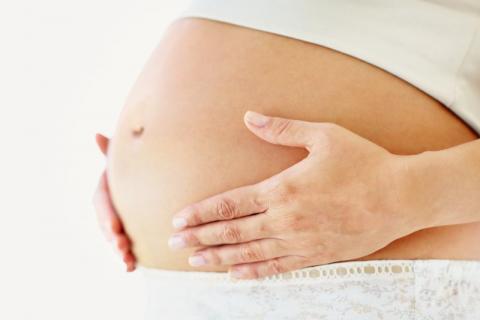Pregnant women reminded to get the whooping cough vaccine

The Public Health Agency (PHA) is reminding pregnant women to get the whooping cough (pertussis) vaccine from week 16 or above of their pregnancy.
So far this year there have been 114 cases of whooping cough in Northern Ireland reported to PHA, which is a slight increase on last year, when in the same time period there were 97 cases.
Whooping cough is a disease that can cause long bouts of coughing and choking, which can make it hard to breathe. It can be very serious for young children, and even fatal for babies.
Dr Declan Bradley, Consultant in Health Protection at the PHA, said: “Whooping cough has become more common again over recent years, and babies who are too young to start their vaccinations are at greatest risk. When pregnant women get vaccinated, they help give their baby protection against whooping cough for the first few months of their baby’s life. I would therefore urge all eligible women to take up the offer of this vaccine to help protect their baby after he or she is born.
“The uptake of this vaccine has so far has been lower than expected at around 60%, but by getting vaccinated, the baby’s risk of being infected is reduced by over 90%. We want to encourage pregnant women to get the vaccine to reduce the risk of their baby catching whooping cough after he or she is born.
“The best time to get the vaccine is from 16 weeks of pregnancy, but if a woman misses out, she can still get it later in pregnancy. However, the best protection to the baby is when the mother gets the vaccine as close to the recommended time as possible. The vaccine is given at your GP’s surgery – make sure you make an appointment to get it.”
Four years ago, in response to a national whooping cough outbreak, pregnant women were offered the whooping cough vaccination for the first time as part of a programme to help protect their newborn babies. After birth, parents should also ensure their infants get vaccinated against whooping cough on time, including babies of women who had the vaccine in pregnancy. This is to continue their baby’s protection through childhood.
Parents should also be alert to the signs and symptoms of whooping cough, which include severe coughing fits accompanied by the characteristic ‘whoop’ sound in young children, and a prolonged cough in older children or adults.
Very young babies may not develop the ’whoop’ but have severe coughing bouts and can’t catch their breath. It is also advisable to keep babies away from anyone showing the signs and symptoms of whooping cough.
For further information on whooping cough and the vaccination programme, please see the PHA guidance at www.pha.site/whoopingcough or ask your GP or midwife.
